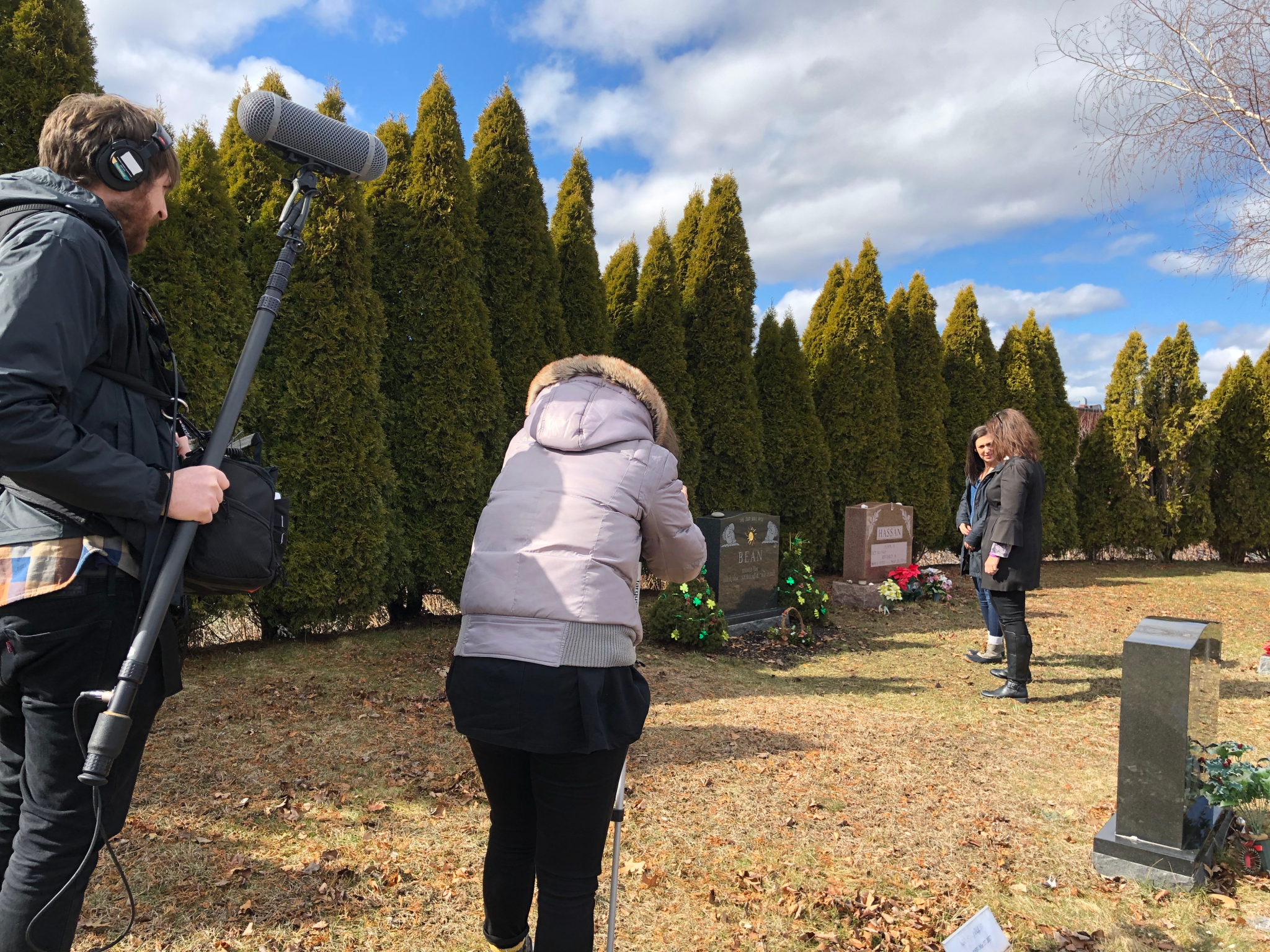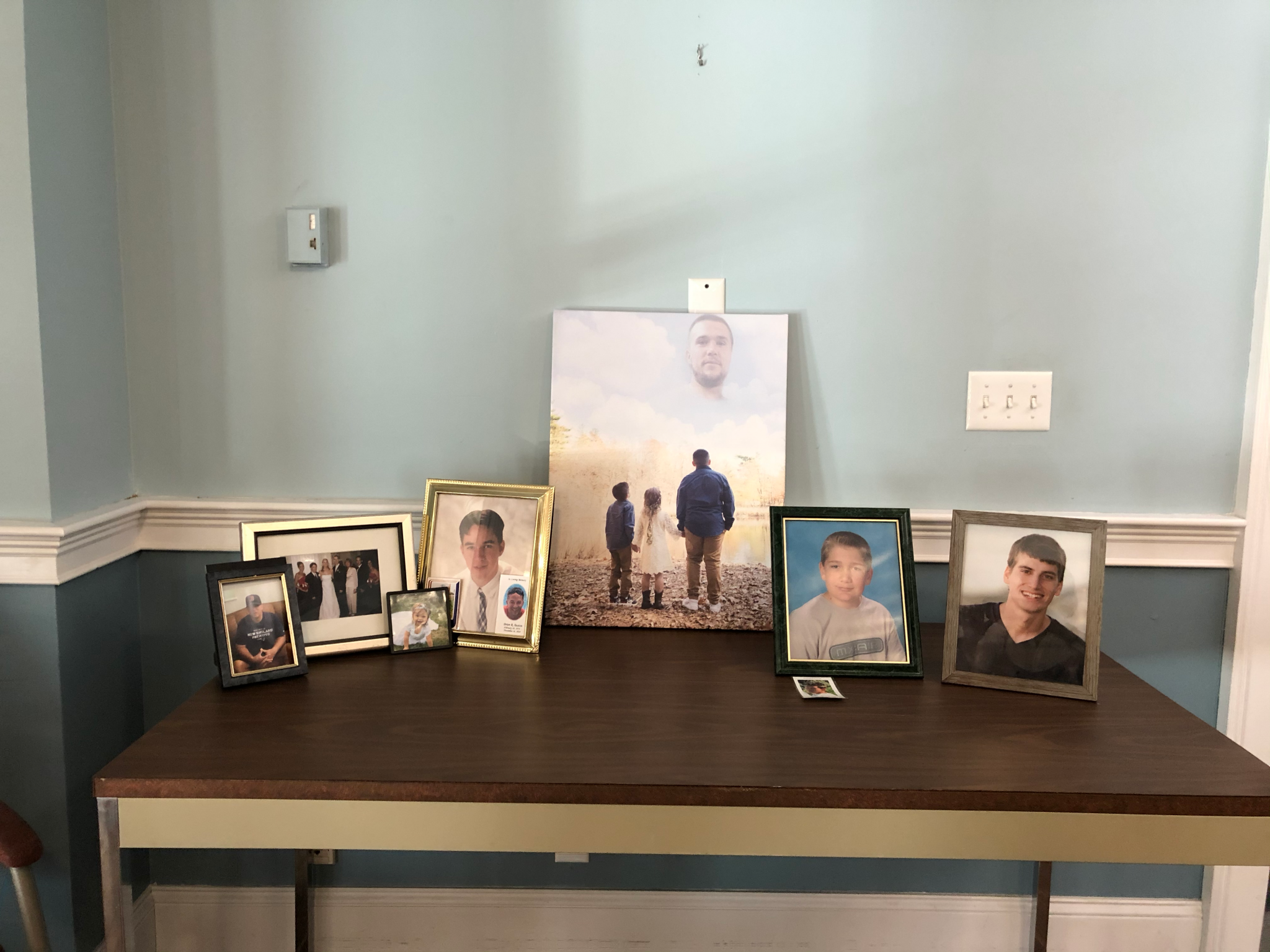Over 2,000 people died of opioid overdoses in Massachusetts last year. Our state has one of the highest rates of opioid overdose deaths in the country. Substance use upends the lives of not only those facing an opioid use disorder, but their friends and family as well.
The effects of this public health crisis can be felt at the state, local, and individual level, and the Metropolitan Area Planning Council (MAPC) is committed to supporting residents within our region who have been affected.
This spring, MAPC Artist-in-Residence Hortense Gerardo, along with The Boom House Productions, set out to create a short video (“video-let”) to highlight the story of a mother and daughter whose lives were upended by the opioid epidemic. Robyn Houston-Bean’s son, Nick, died of an opioid overdose at the age of 20 in his bedroom of the family home in Braintree.
The video-let follows Robyn and her daughter Olivia’s journey of loss, their recovery process, and the creation of The Sun Will Rise, a foundation created in Nick’s memory.
“We want to stop the stigma,” says Houston-Bean in the video. “If it can happen to us, it can happen to you.”

A watershed moment in the family’s recovery process was participating in The Opioid Project, an art and storytelling initiative led by two local artists to fight the stigma against talking about opioid use. MAPC recently began providing support to The Opioid Project, and that relationship connected Gerardo with Nick’s family.
The Opioid Project provides a safe space for individuals that have been affected by the opioid epidemic: those still actively using, people in recovery, friends and families who have lost a love one, first responders, and others whose lives are touched by opioids can gather to share and process their personal experiences in workshops where they create art and share their stories.
The initiative travels from community to community, partnering with community-based organizations to identify participants for the workshops. The final artworks and the stories of their creators are displayed in various settings within the community, and the public is invited to view the art and listen to audio recordings.
“The Opioid Project brings people together so they’re not alone, and [so] that they can express their grief,” says Houston-Bean. “So it gives all sorts of people who have been affected by the opioid epidemic a voice. Then, it gives the community at large a chance to talk about it and see it.”
The installations create conversation and dialogue around the often-hidden impacts of opioids within a community. The art and stories encourage people to think about the negative influence stigma has on individuals who are still active users, in recovery, or have lost a loved one.
Ultimately, The Opioid Project founders believe that the power of the collected stories and experiences can both bring attention to the crisis and create real change, sparking advocacy and increasing access to mental health services.

Community-based organizations like The Opioid Project and The Sun Will Rise are empowering individuals to find their voices and share their stories, creating a network of support for those impacted by opioids. By spreading information and breaking down the stigma around substance abuse, organizations like these can save lives.
“Substance use disorder is a disease just like heart disease and diabetes,” says Lyn Frano, Braintree’s Substance Use Prevention Coordinator, in the video. “Early detection and early intervention make for better outcomes.”
About this Video-let
This video-let will serve as a tool for The Opioid Project and The Sun Will Rise Foundation to highlight how they are supporting community members and also act as an educational tool reinforcing the importance of youth prevention efforts to address opioid use disorder.
For MAPC, this video-let will be used as an advocacy tool to champion additional funding to support residents within Metro-Boston in building resilience in response to the opioid epidemic.
MAPC’s Opioid Use Prevention Work
MAPC led an initiative on behalf of the Metropolitan Mayor’s Coalition to review and share municipal and regional best practices and strategies to respond to the opioid crisis. MAPC has also been supporting The Opioid Project with their workshops and identifying opportunities to amplify stories in hopes of reaching a broader audience.
